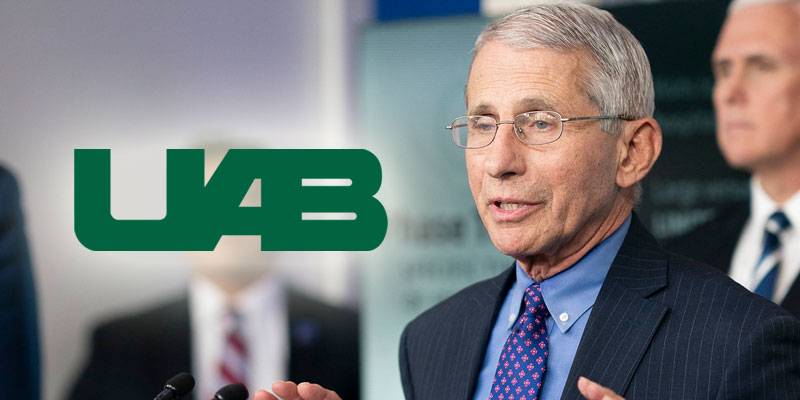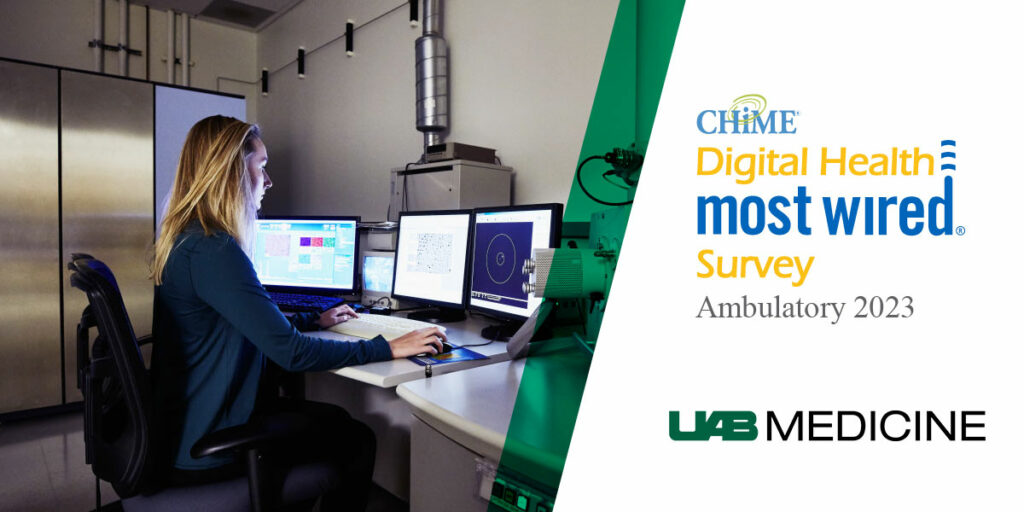University of Alabama at Birmingham (UAB) medical experts on Wednesday described with measured excitement the results experienced by COVID-19 patients treated with the drug remdesivir.
Remdesivir is an antiviral drug that showed promising results for treating the novel coronavirus in a much-discussed clinical trial that the National Institutes of Allergy and Infectious Diseases (NIAID) published a statement about on Thursday.
UAB was a participating clinical site in the now-famous study and administered the drug to participating patients. However, UAB’s involvement goes significantly farther.
As reported by Yellowhammer News in February, a drug discovery program housed at UAB led to the development of remdesivir. This discovery came from a public-private partnership that also included Birmingham-based Southern Research and the pharmaceutical company Gilead Sciences, which is now producing the drug.
White House health advisor and NIAID Director Dr. Anthony Fauci on Wednesday proclaimed to the nation that remdesivir “will be the standard of care” moving forward for coronavirus-positive inpatients. He called the trial results “quite good news.”
Speaking on Wednesday via live stream, Drs. Paul Goepfert, M.D., and Nathan Erdmann, M.D., both from the UAB Division of Infectious Diseases, also commented on the remdesivir trial results.
“This has been a rather extraordinary study,” began Erdmann, before explaining that patients treated with remdesivir had been released from the hospital sooner, and the severity of their symptoms had been reduced compared to a placebo group.
Erdmann added that the results shown so far are “highly suggestive” that remdesivir can reduce the fatality rate of COVID-19, but the data was not quite definitive in that area yet.
“We know this is something that will actually help patients,” Erdmann remarked in a summary of the results.
“It is likely going to be saving lives,” commented Goepfert.
During questioning by reporters Goepfert did caution that remdesivir “is not a home run at this point,” but followed up quickly saying the results made him “extremely hopeful.”
The overall study was an international effort comprised of 68 clinical testing sites — 47 in the United States and 21 abroad. A total of 1,063 patients agreed to be subjects.
The full results are currently being fashioned into a report by scientists at the NIAID, which will be published soon.
Participating patients were either given a daily infusion of remdesivir for 10 days or a daily placebo for the same amount of time.
Goepfert was the principal investigator of the study at UAB, and Erdmann focused on participant enrollment and oversight.
UAB enrolled 16 coronavirus patients in their segment of the study, all of which had cases severe enough to require hospitalization.
Goepfert said it was likely that “the majority of people who enrolled in the study were elderly or had some sort of pre-existing condition.”
Doctors at UAB Medicine are now trying to ascertain which patients were given the placebo, so they can now be given remdesivir.
“When you know a drug works, you have to let people in the placebo group know so they can take it,” Fauci said in his remarks the same day.
Goepfert said one of the reasons the study’s preliminary results were released earlier than normal is so the patients in the study who had been given the placebo could now be given remdesivir as a treatment.
Gilead is anticipated to ramp up production of the drug now.
“The challenge is going to be for Gilead, the drugmaker, to come up with enough doses to treat the number of people that are going to need this,” advised Goepfert.
Goepfert believes that, based on this study, nearly every patient in the United States hospitalized with COVID-19 will be given remdesivir as a treatment.
Gilead CEO Daniel O’Day told the medical news site STAT, “We’re going to make sure that access is not an issue with this medicine.”
Erdmann was slightly more measured in his vocabulary choice during questioning by reporters.
“It is not a miracle drug,” Erdmann warned, before continuing on to say that having “actual positive progress this quickly in the global outbreak is certainly encouraging.”
Both doctors said that remdesivir will now most likely be used as a baseline treatment for hospitalized COVID-19 patients, and future studies will focus on which drugs most effectively accelerate the encouraging remdesivir results.
Erdmann said that hospitals have not noticed a significant amount of side effects from taking remdesivir.
FDA Commissioner Stephen Hahn said on Wednesday noted that the agency is moving at “lightning speed” to review data on remdesivir after the encouraging trial results emerged.
“We’re working with the company to emphasize the necessity of speed while at the same time to understand the data,” Hahn added in an interview.
President Donald Trump on Wednesday also touted remdesivir, emphasizing he wants the FDA to approve the drug “as quickly as they can.”
Erdmann and Goepfert commented that an earlier study from China, which indicated remdesivir was not effective against COVID-19, was most likely too small a study to reveal the results seen in the American-led study announced Wednesday.
“UAB has actually been on the forefront of testing antiviral drugs for a long time,” Goepfert told a reporter.
Erdmann said that some in the study had traveled from across the state “to get the most cutting edge treatment that was available.”
Henry Thornton is a staff writer for Yellowhammer News. You can contact him by email: [email protected] or on Twitter @HenryThornton95
Yellowhammer News Editor-in-chief Sean Ross contributed to this report












